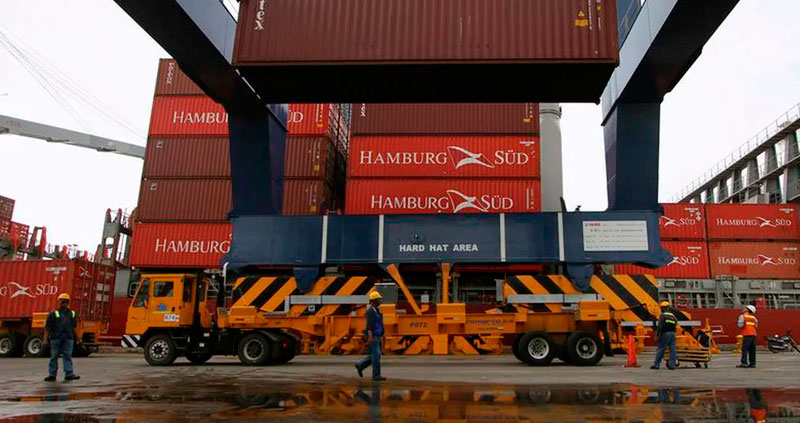In order to avoid the multilateral crisis that is currently taking place at the international level, the Minister of Commerce, Germán Umaña, announced that Colombia will increase tariffs and antidumping measures in the country.
“When the president talks about a smart tariff, he is saying that in the face of the subsidies from developed countries and to the extent that we do not have the money to give all those subsidies, we will have to apply all the measures that exist in the international legal framework. in commercial defense”, assured the head of the Commerce portfolio in Colombia Hoy Radio, a program of the national government.
According to the senior official, these actions will seek to prevent Colombia from having to face a crisis of multilateralism and globalization.
Regarding his international tour in recent weeks, the Minister of Commerce assured that the Free Trade Agreements (FTA) that Colombia has with different countries were evaluated, in order to guarantee that there is a balance in benefits such as subsidies, food security , agribusiness and production.
“There is a golden opportunity for the country, because in this energy transition we have all the offer of biodiversity, air, water, multiculture, traditional knowledge, wealth and the beauty of Colombia, which hopefully will be consolidated with the peace process that they are trying to manage it,” Umañana told Colombia Hoy Radio.
The road map of the Commerce, Industry and Tourism sector in the National Development Plan
It is worth remembering that after the approval of the National Development Plan (PND) the Ministry of Commerce had already highlighted the importance of tariffs to achieve balanced trade in the country.
According to what was said by the portfolio, the tariff is an instrument that allows not only “competition on equal terms for national production”, but also the defense of local production affected by “unfair practices and maneuvers contrary to free International Trade”.
“It gives the Government the possibility of adopting, for reasons of national security, food sovereignty and protection of the industry and the market, restrictive or promotional or reciprocal trade measures, compared to those adopted by a foreign government,” said the Ministry of Commerce, while adding:
“It also gives the Executive the green light to strengthen the investigative authority, which is the one that carries out the investigations and technical and legal analysis when there is room for the adoption of a trade defense measure; this will allow more speed, agility and efficiency in the investigation processes”, indicated the portfolio.
In Argentina, there are large areas with wind, solar radiation, abundant water and an energy matrix capable of advancing the transition to renewable energy (Fernando Calzada)
Another of the points in economic matters that were approved in the PND was the creation of the National Council of the Popular Economy, an organization that will be in charge of formulating inter-institutional policies and actions for the recognition, defense, free association, strengthening and sustainability of the economy in the country.
“To support the financial and credit inclusion of the Popular Economy, there will be nanocredits, accompaniment, technical assistance and financial education to strengthen these businesses,” the Ministry of Commerce detailed.
According to the portfolio, they will also offer 100,000 nanocredit operations for microbusinesses, which will be executed through Bancóldex and the National Guarantee Fund (FNG).
With the initiative, businesses that are part of the ‘Popular Economy’ will have the opportunity to participate in public contracting and purchasing through public-private partnerships. “State Entities may enter into direct contracts for up to the minimum amount with natural persons or non-profit entities that are part of the Popular and Community Economy,” the Ministry pointed out. with Infobae
